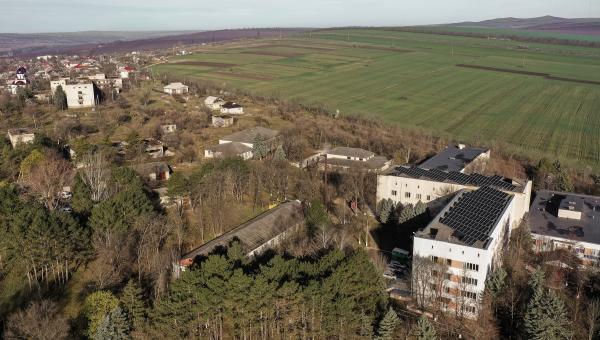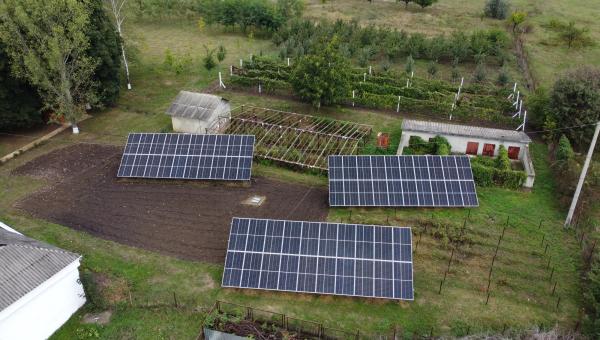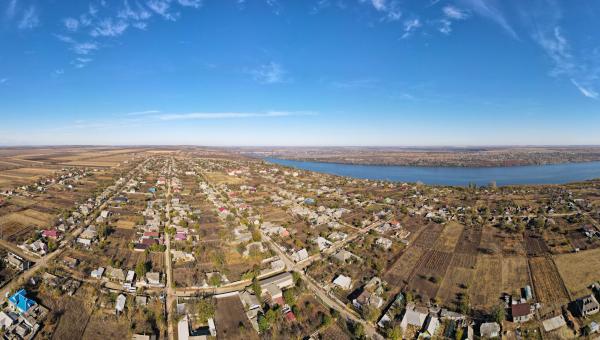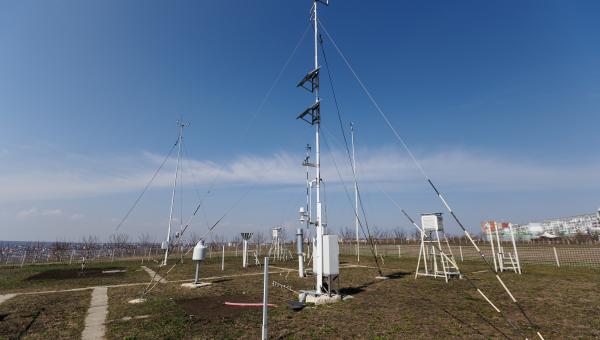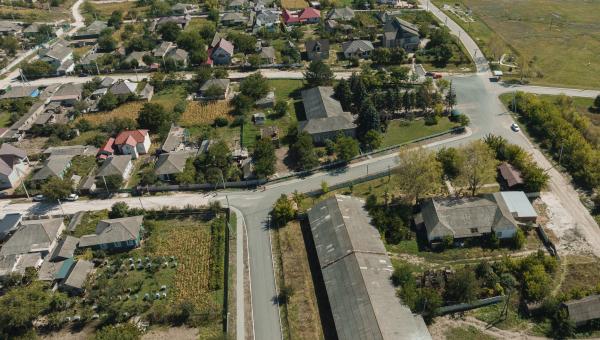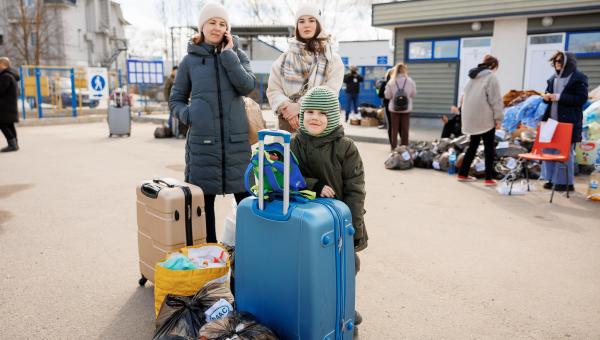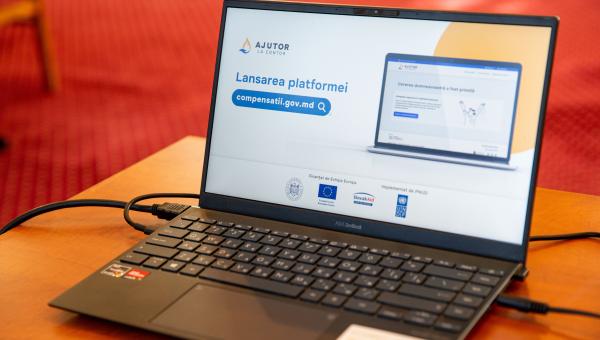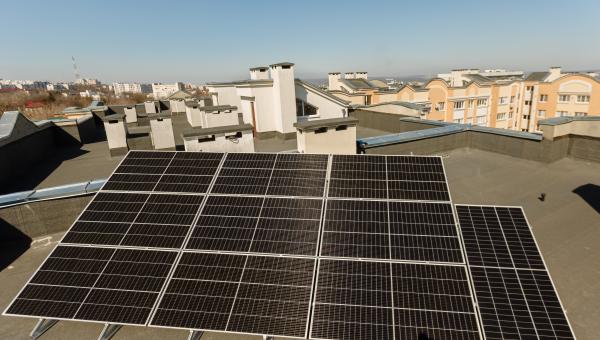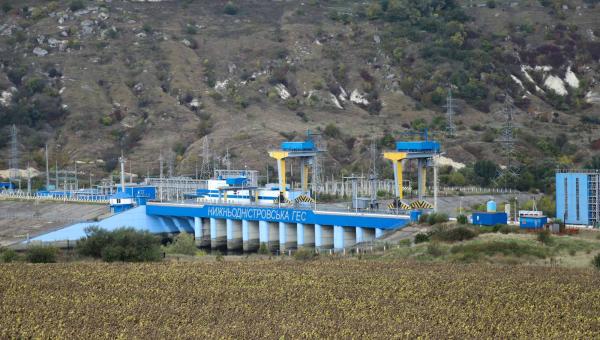
Focus areas
Climate change, environment & energy
Summary
Climate risks, biodiversity loss and energy dependence
Moldova is highly vulnerable to climate change and related disasters, with an average annual economic loss of 2.13% GDP. Significant impacts of climate variability have been visible in recent years, with recurring drought and flood events. Climate projections point further aridification which will be affecting – among others – agricultural productivity, availability of water resources, ecosystems, prosperity, and human health.
The country’s unique biodiversity is currently threatened by climate change, habitat fragmentation and over-exploitation of environment resources. Enforcement of environmental legislation is lagging behind European standards and leads to environmental degradation, pollution and unsustainable use of natural resources. Moldova is still highly dependent on imported energy sources, and mostly uses fossil fuels. In addition, inefficient energy supply and consumption across all sectors exacerbates the situation. While there is a decrease in the country’s energy intensity, it is still higher than the average energy intensity in the EU countries by 29%.
Green development. Decarbonization and circular economy
The most important driver of change in the environmental sector is the European integration agenda which requires harmonization and alignment with the EU environmental acquis and the EU Grean Deal objectives. Since May 2010 Moldova has been a full member of the European Energy Community Treaty which involves further obligations for policy development and harmonization of legislation in the environment and energy sector.
UNDP is assisting the Government of Moldova in its transition towards low-emission, green and climate-resilient development, by building up institutional, legal and individual capacities to respond to the green and resilient development objectives. UNDP is intending to build strong alliances for advancing green transition agenda, contributing to transitioning to circular economy practices, fostering private public partnerships and encouraging investments in energy efficient and circular solutions.
A special focus is placed on exploring the greenhouses gas emissions mitigation potential in various sectors, such as transportation, agriculture, waste management, promotion of renewable energy solutions, energy efficiency measures and resource efficiency production and consumption patterns. At the same time, support to the reform and modernization of environmental management systems conducive to green development and EU standards are being provided.

A company financially supported by UNDP Moldova and the European Union, provides, with the help of drones, intelligent services to Moldovan farmers: pest and weed management, mapping and monitoring of agricultural lands.
In depth
In Moldova, UNDP is the leading development partner in the area of environment and climate change. UNDP activities in the areas of climate change, environment and energy range from provision of support for development of environment-friendly and climate-sensitive national and local policies and legal frameworks to the piloting of on-the-ground solutions enabling modernization of respective sectors, as well as technology transfer and alignment with the commitments assumed under the 32 multilateral environmental conventions, protocols and agreements to which Moldova is party, as well as EU accession agenda.
While the main beneficiaries of policy and legal frameworks are the central and local public authorities, through the piloted demonstration projects UNDP is reaching out to NGOs, urban and rural communities and the private sector to increase their capacities for climate change adaptation and mitigation, through: capacity building of climate resilience, through women empowerment in rural areas, climate education in schools across Moldova, access to affordable renewable energy and energy efficiency measures, disaster risk reduction and climate-smart cities through innovative solutions and new technologies.
Climate change adaptation and disaster risk management
While the institutionalization of the climate change coordination mechanisms, is under way with UNDP support, several efforts have been undertaken to strengthen the capacities of the State Hydro-Meteorological Service to provide climate services to anticipate, prepare for and prevent climate-related impacts especially in the agricultural sector.
UNDP is equally supporting the Government of Moldova in implementation of the adaptation and resilience-building initiatives. Combined, they aim to enhance country’s capacity to anticipate, prepare for and prevent climate-related impacts. Strategic interventions such as expansion of the agro-, hydro- and meteorological networks will strengthen the early-warning and forecasting capabilities, especially in the agricultural sector. At the same time, development and endorsement of the climate budget tagging methodology is aimed at enhancing transparency and accountability in public climate finance.
UNDP supports rural women to enhance their access to alternative income generation activities, support services and knowledge on the best and most efficient strategies in managing forest ecosystems, water, including in the transboundary context, and agricultural land to increase community's climate resilience.
UNDP is equally helping the Moldovan Government continue to increase its capacity to address the country’s long-term vulnerabilities to climate change in its national priority sectors. Among the major achievements of UNDP support so far is development and adoption of the 2030 National Adaptation Programme and reforming of the Climate Change Coordination Mechanism, as well as of the State Hydro-meteorological Service to provide improved climate services.
Green and just energy transition
UNDP will promote the green development agenda aimed at reducing the country’s carbon footprint and the vulnerability to climate change and degradation of natural resources. UNDP will support the Government of Moldova in development of the enabling framework for the green transition and initiate actions to promote resource efficient and circular economy, low-carbon transportation, and clean energy in line with requirements of EU Accession.
On just energy transition, UNDP will engage with the residential and private sectors to enhance adoption of energy efficient and renewable practices and technologies. In addition, UNDP will facilitate transforming the national electricity grid to a smart one, through piloting smart metering technology, thereby laying the foundation for an improved evidence-based decision making in the energy sector.
Similarly, UNDP is committed to serving as a platform for fostering regulatory innovations for the energy sector in a sandbox environment, such as energy communities and differentiated tariffs on electricity for end users. Further implementation of the Eco-Voucher and Green Home programmes, while taking into consideration energy vulnerability and gender dimensions, will prevent vulnerable households, particularly those led by women, from falling under the poverty line.
UNDP technical assistance is provided to finalize and operationalize the integrated National Energy and Climate Plan as an integrated 10-year plan that details steps to meet the energy efficiency, renewable energy and other targets for 2030, in line with the EU Regulation on the governance of the energy union and EU’s clean energy package.
Energy Vulnerability Reduction Fund
The consequences of the war in Ukraine on the Moldovan population are far-reaching, with particularly adverse effects on already vulnerable and poor segments of the population. Based on an income simulation exercise, UNDP estimates that the number of people living in poverty due to the impact of the war, including high inflation, could more than triple to about 35% of the total population. UNDP estimated over 63% of families to become energy poor.
The Energy Vulnerability Reduction Fund (EVRF), co-designed and co-implemented by UNDP with the Government of Moldova is positively mitigating this trend, supporting energy poor households through short-term on-bill compensations and longer-term investments in energy efficiency in the residential sector. UNDP helps mobilize resources for the Moldova’s Energy Vulnerability Reduction Fund. UNDP will continue to support the Government to address energy poverty and vulnerability and integrate the EVRF into a single social protection digital platform, with the view to ensuring a just energy transition.
Environment protection and biodiversity conservation
UNDP has a long-standing experience of work with environment authorities, in such areas as water, biodiversity, waste management, land degradation, and air quality monitoring as part of the currently green transition agenda.
UNDP supports the country with a methodology that provides innovative steps to measure current biodiversity expenditures, assess financial needs, identify the most suitable finance solutions and provides guidance on how to implement these solutions to achieve their national biodiversity target.
UNDP is equally piloting environmental and climate resilient solutions at the community level in cooperation with the Local Public Authorities, women groups, youth, NGOs/CBOs, the private sector and others, which all contribute to the local and national climate and environmental targets and objectives.
In addition, through the initiatives funded by the GEF Small Grants Programme, UNDP supports the community-based organizations and non-governmental organizations to act as agents of change for local communities for an improved nature conservation, land degradation, sustainable forest management, ecosystem adaptation to climate, green urban development, etc. More than 250 civil society organizations have strengthened capacities in the field of environmental project development, implementation and monitoring, and environmental education.

 Locations
Locations

